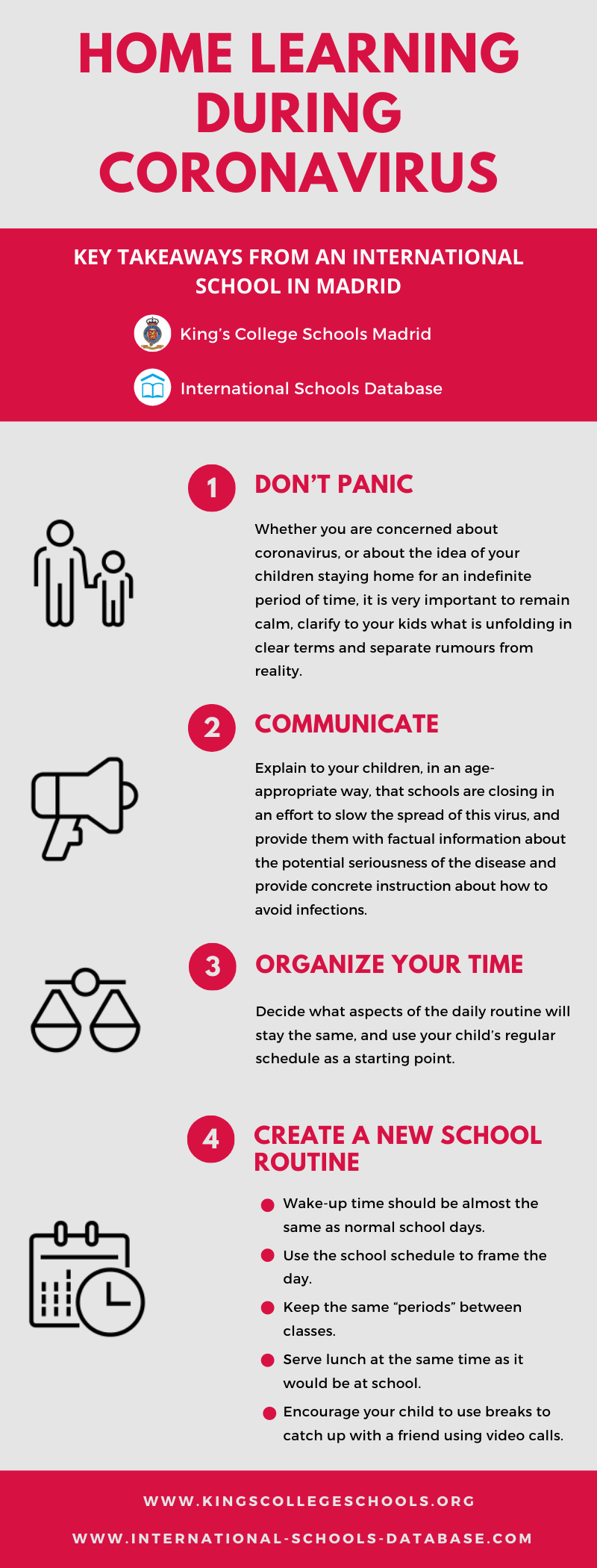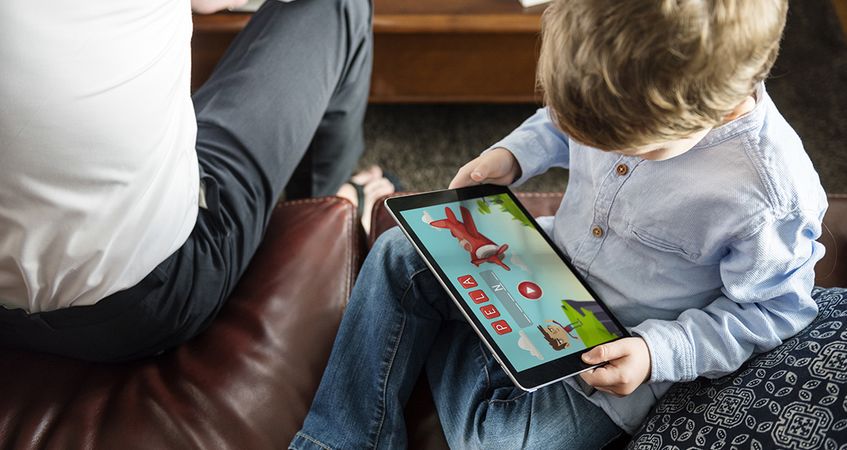How an International School in Madrid is dealing with the COVID-19 crisis
During the past week, the coronavirus has cast uncertainty over the future of education. Under normal circumstances, almost 10 million Spanish students would be attending their respective educational centres. However, the new coronavirus spreading wildly across the country has forced all schools in Spain to shut their doors for at least 15 days. This measure was one of the first put into practice to combat the spread of the infection, and it has naturally raised a host of questions such as: What happens now?
King’s College Schools – an internationally recognised network of schools providing a high quality British education, - have some key takeaways to share after having implemented their remote learning program:
Key takeaways that can help parents and their children navigate this new reality.

Don’t panic
Whether you are concerned about coronavirus, or about the idea of your children staying home for an indefinite period of time, it is very important to remain calm, clarify to your kids what is unfolding in clear terms and separate rumours from reality.
Communicate
Explain to your children, in an age-appropriate way, that schools are closing in an effort to slow the spread of this virus, and provide them with factual information about the potential seriousness of the disease and provide concrete instruction about how to avoid infections.
Organize your time
Decide what aspects of the daily routine will stay the same, and use your child’s regular schedule as a starting point.
Create a new school routine
- Wake-up time should be almost the same as normal school days, despite what your children might prefer. After that, use the school schedule to frame the day.
- Keep the same “periods” between classes, which will help allot set times for different activities and provide both structure and variety to each day.
- Also, try finding different quiet places that they can work from throughout the day. For example, morning study time is at the kitchen table, but midday reading is on the front stoop and afternoon study time is in the den.
- Serve lunch at the same time as it would be at school, and encourage your child to use that break to catch up with a friend using FaceTime to provide more personal social engagement with peers.
The King’s College Schools approach
Students from King’s College continue their classes despite the announcement of the temporary closure of educational centres:
“We are not closed, but we work in the way that the situation requires, online and remotely, always in contact with the students and their families to maintain educational activity and to make sure this situation has the least impact on the development of the academic year. Our digital learning plan has enabled us a quick pivot to remote learning and has proven to be a great success. During these days, students have been able to continue with the normal teaching rhythm imposed by their respective courses.”
King’s College Schools provide an online programme during regular school hours. It is a virtual system, adapted to each centre and its needs, this facilitates both the continuation of the academic curriculum and direct communication between parents, teachers and students. The online programme includes virtual classes, tutorial videos, daily exercises and group dynamics for all educational stages. Students access the training through the same online platforms they already use regularly for some educational activities, so that they find it easier to adapt to the new dynamics of online studying.
Apart of shifting to online learning and making it a meaningful experience, King’s College Schools provide ongoing parent communications in order to deal effectively with the COVID-19 crisis. All of their digital tools such as websites and social media are constantly being updated with recent news, and videos showing how students are adapting to e-learning.
